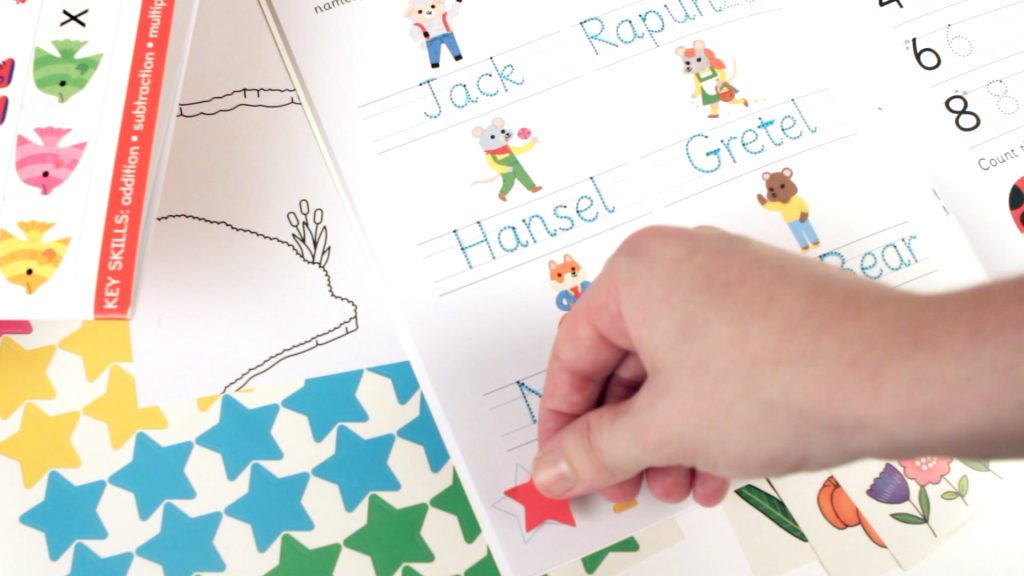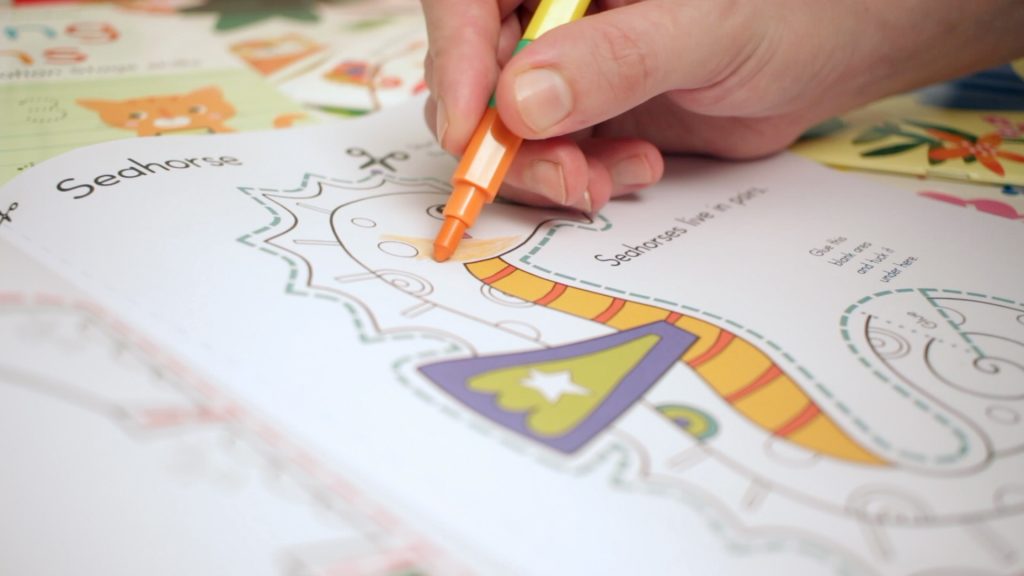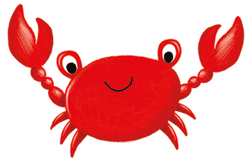Activity books – simply fun or is there more to it?
Jan 12, 2021 In For Grown Ups
Chances are most of us will have grown up enjoying kids activities whether it was colouring activities, puzzles or mazes. Hours can be spent enjoying all sorts of activities but have you ever considered what’s beyond the dot to dot…are these childhood ‘games’ more than just fun?

For pre -schoolers and beyond…
For children from three to five it is important to ensure they are exposed to and encouraged to take part in activities aimed at supporting the main areas of development prior to starting school. This will ensure they enter the education system with the best levels of competence and dexterity to allow them to get the most out of their beginnings at school.
Children aged five to seven in the KS1 years (Key Stage 1) and those aged seven and over in KS2 years (Key Stage 2) benefit enormously by continuing to develop these key areas of learning. As well as learning topics at school, supporting children at home with activities to enable understanding and explore creativity, will build confident learners and encourage a joy for learning throughout the school years and beyond.
Of course with such young minds, it is always a good idea to make any activities fun, enjoyable and engaging and more often than not, kids won’t even notice they are learning at the same time!
Key Skills in Child Development
So what are the key skills to encourage in child development –
1.Cognitive Development – This is the construction of thought processes, in other words the ability to learn and solve problems. At preschool age, puzzles, basic mazes and ‘spot the difference’ are a great way to support this key area of learning. As a child develops, raise the standard of these activities to gently challenge them, rewarding them with a sense of achievement and enable them to progress through to KS1 and KS2 levels. Cognitive behaviour is the foundation to building creative thinkers, able to take on a wide variety of tasks and solve problems – skills they will value throughout life.
2. Fine Motor Skills – the ability to use small muscles, specifically in their hands and fingers. These skills are important to develop in order to complete important tasks such as buttoning up and zipping up clothing, feeding oneself and writing. From the earliest encouragement of allowing babies ‘tummy time’ to finger feeding, children are developing the dexterity and strength in their hands, fingers and thumbs that will allow them to progress to more complicated tasks. At preschool age, simple activities like colouring will help develop these key skills. Start by giving children chunky crayons around the age of three as these are perfect for little hands and encourage regular colouring in activities. As a child grows, refine the size of the pencils until they are using a standard pencil size by the time they are starting school. Cutting with scissors is also a brilliant activity to develop fine motor skills and should be encouraged regularly. Look out for activity sheets to cut out and colour in. These can be found in our Bumper Activity Pack for preschoolers or in our free printables.

3. Speech and Language – the skills we use to communicate with others, these skills are developing from birth and can be actively supported for pre-school children by introducing literacy tasks – which may sound too educational for small children but make these tasks fun and they will absorb the learning with joy. As we know, every child will learn at different rates so it’s important to support this area of development to allow children to achieve milestones. At pre-school age encourage children to start writing by introducing them to the sounds and shapes of the alphabet – using an early years writing activity book is a great way to do this, introducing more complex activity books as they follow through KS1 and KS2. When taking part in any speech and language activities it’s always important to guide a child by taking part in the activity yourself, discussing what you are doing and making it as fun as possible.
4. Numeracy – More than just numbers, numeracy involves identifying shapes, measuring, creating patterns as well as counting and solving number problems. From the age of three, children can be helped to understand different shapes and start to look at numbers by exploring their shapes. Use activities such as tracing number shapes, puzzles with shapes and dot to dots to help with this. This foundation will help any child progress with numeracy and take on KS1 tasks such as addition, subtraction and multiplication and beyond to KS2 tasks such as fractions.

5. Creativity – we consider giving importance to all the key areas of development and as such creativity should not be overlooked or the importance it plays in a child’s learning development. Exploring creativity allows children to grow emotionally, socially and intellectually by using creative activities to enable them to share their thoughts, feelings and ideas. The best creative activities – anything that will encourage a child to explore and create their own world through storytelling. This can be with the help of a dress up box, a physical setting such as a sand pit or simply with a crayon and paper. Our activity packs for all stages include basic posters to colour and add to, stickers to start a process of building their own story and scratch art cards to bring a little bit of zing to creative drawings.
Will you ever look at a crayon, colouring sheet or cutting out activity the same again?
Learn more about supporting your children in key development areas by signing up to our newsletter.
Leave your comments below with your best ideas on children’s development activities.
Or take a look at our kids activity packs



Leave a comment